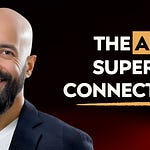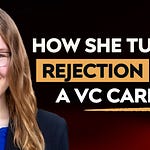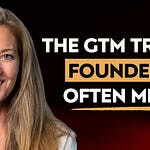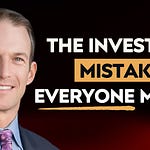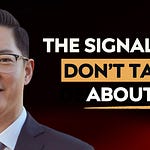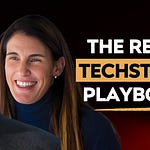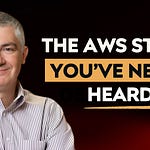If you’re a private equity buyer, independent sponsor, or founder exploring an exit, this episode with Joe Zanca is a pragmatic masterclass on buy-side sourcing and deal design. You’ll learn how to build a credible investment thesis, run multi-channel outreach that actually converts, value lower-middle-market software and services companies, and structure offers with the right balance of cash at close, earn-outs, seller notes, equity roll, and working capital. Joe’s edge: founder empathy—earned as a former operator—which makes sellers pick up the phone and stay engaged through diligence.
Who’s Joe Zanca—and Why Listen?
Managing Partner at Deal Gen Partners, Joe helps PE funds, independent sponsors, and PE-backed operators source off-market opportunities. Before that, he founded and exited On Demand Storage, then launched the podcast “Behind the Deal.” That operator-to-dealmaker arc powers his approach: conversations first, spreadsheets second. The result is warmer founder relationships, better intel, and cleaner paths to close.
The Big Idea: Thesis Before Deals
Most buyers start by “looking for deals.” Joe flips it: build the thesis first—then go find the companies that match.
A sharp thesis clarifies:
Platform vs. Add-On: Are you building a new stand-alone platform or enhancing an existing one?
Customer & Revenue Quality: Recurring vs. re-occurring, churn dynamics, and customer concentration.
Operational Story: Where value creation will come from—pricing power, cross-sell, sales productivity, procurement, or IT savings.
Feasible Multiple Expansion: Realistic path from today’s multiple to tomorrow’s outcome (not wishful thinking).
This alignment saves months of wandering and makes outreach far more compelling to sellers: “We believe your business fits this plan—here’s why.”
Founder Empathy Beats Spreadsheets
Founders aren’t swayed by templated emails and vague “strategic interest.” They respond to people who understand the grind:
Lead with context. Reference their niche, customers, and growth levers you’ve actually seen.
Talk in outcomes. “Here’s the 18-month plan and what it could mean for your team and equity.”
Respect momentum. Validate what’s working before pitching change.
Joe’s operator background helps him ask better questions (and fewer of them), creating trust without a data-dump or a fishing expedition.
Multi-Channel Outreach That Lands Calls
Joe’s approach is deliberate, not spammy:
Data Sources + Filters: Build a right-fit list from industry databases and public breadcrumbs (ICP filters, signals, and ownership details).
Sales Navigator to triangulate decision-makers and warm paths.
Email + Power Dialers for efficient, respectful volume—personalized by sector.
Handwritten Notes for high-intent targets (yes, they still work).
Podcasting as a Relationship Engine: His show creates genuine touchpoints that often become deal conversations.
The throughline: consistent, thoughtful touches that prove you’ve done the homework.
Platform vs. Add-On: Pick the Right Path
Choosing wrong wastes time. A quick gut-check:
Platform if there’s room to build a category wedge, durable recurring revenue, and multiple expansion via professionalization and tuck-ins.
Add-On when it slot-fits a larger thesis (geography, product adjacency, channel access, or a capability gap).
Joe emphasizes documenting this decision in a 1–2 page Deal Hypothesis that the target can react to. When sellers see themselves in your story, diligence speeds up.
Valuing Lower-Middle-Market Software (and Services) Today
Pricing isn’t just ARR × a number. Buyers weigh:
Growth + Profitability Mix (quality of growth, not just speed)
Net Dollar Retention / Churn
Customer Concentration & Contract Terms
Sales Efficiency / Pipeline Predictability
First-Institutional Readiness (reporting, leadership bench, systems)
Multiples compress when revenue is fragile, expands when retention is sticky and ops are tight. Joe outlines “what good looks like” and cautions against paying for future fixes you don’t control.
The Terms That Make (or Break) a Close
Great deals die on structure, not price. Joe’s quick framework:
Attractive to Sellers
Cash at Close: Signals conviction; reduces founder anxiety.
Clean Reps & Warranties / Light Escrows: Lower friction.
Bridge the Gap
Earn-Outs: Tie a portion of price to clear, controllable KPIs. Avoid “gotcha” metrics and set achievable windows.
Seller Notes: Helpful when banking markets are tight; align interests without strangling post-close cash.
Equity Roll: Keep founders invested emotionally and financially—especially in platform plays.
Don’t Forget Working Capital
The quiet lever that affects real proceeds and Day-1 health.
Align on a normalized working-capital peg early; growth companies often need more WC than trailing looks suggest.
Process & CRM: Qualify, Don’t Chase
Joe’s team runs a crisp process:
Define ICP (revenue mix, customer profile, end-market dynamics).
Discovery Screen in minutes: founder intent, timing, deal-breakers.
Document Everything in a simple CRM: status, next step, hypothesis notes, and a short founder narrative.
Move On Quickly when fit or intent isn’t there. Energy is finite.
This discipline makes it easier to re-engage months later with context, not chaos.
From Conversation to Close: The Trust Flywheel
Podcast → Relationship: Offering a platform to share founder stories builds goodwill.
Relationship → Signals: Founders reveal what they value—and what they won’t accept.
Signals → Tailored Offer: Structure mirrors the founder’s priorities (speed, certainty, upside).
Tailored Offer → Close: Less haggling, fewer surprises.
Joe’s mantra: “Make it easy to say yes.” That means clarity on the plan, honesty about risks, and a structure that respects the founder’s journey.
Case-Type Playbooks Joe Sees Work
Multiple Arbitrage: Buy a strong niche asset, layer go-to-market discipline, and add tuck-ins to grow from sub-scale to strategic size.
First Institutional Lift: Professionalize reporting, pricing, and pipeline; stabilize churn; then refi or sell to a bigger buyer.
Cost-to-Grow: Use shared services (including IT savings and vendor consolidation) to unlock margin while funding growth—Joe cites work like Bullpen Technology Partners as an example of operational value creation across portfolios.
Common Mistakes to Avoid
Thesis Drift: Chasing shiny deals that don’t match your platform logic.
Vague Outreach: “We’re interested in exploring synergies”—delete.
Overpaying for Fixes: Paying a premium for improvements you still need to execute.
Messy Earn-Outs: Metrics the seller can’t control or that conflict with integration plans.
Ignoring Working Capital: It can erase hard-won “headline price” gains.
Skipping the Founder Narrative: If you can’t tell their story back to them, you haven’t earned the deal.
A Simple 7-Step Checklist to Put This Into Action
Write the Thesis (1–2 pages): ICP, value creation levers, platform vs. add-on, target outcome.
Map the Market: Build a right-fit list with ownership notes and quick health signals.
Create the Outreach Pack: 3 email variants, a 30-second call opener, and a founder-friendly one-pager.
Run the Cadence: Email + calls + 1–2 thoughtful touches (e.g., handwritten note or relevant content invite).
Qualify Fast: Use a 10–15 minute screen; don’t force fit.
Co-Draft the Hypothesis: Share the 18-month plan, ask for redlines; refine together.
Structure for Certainty: Balance cash, earn-out, notes, equity roll, and a fair WC peg early.
Final Take
Deals are human before they’re financial. Joe Zanca’s approach proves that empathy, clarity, and process are the real unfair advantages in today’s market. Get the thesis right, respect the founder’s arc, and design a structure that aligns incentives. Do that—and you won’t just find more deals; you’ll close better ones.
👂🎧 Watch, listen, and follow on your favorite platform: https://tr.ee/S2ayrbx_fL
🙏 Join the conversation on your favorite social network: https://linktr.ee/theignitepodcast
Chapters:
00:01 Introduction
00:41 Origin Story
04:12 Operator Lessons That Shape Sourcing
08:31 Why Start Deal Gen Partners
11:46 Launching the “Behind the Deal” Podcast
14:08 Defining the Podcast Focus
15:18 Content to Relationships (Credibility Flywheel)
20:07 Sourcing Toolkit & Channels
22:26 Fee Model (Retainer + Success)
25:26 Process & CRM Hygiene
27:38 Where They Hunt (LMM Software & Services)
29:56 Valuing Software Today
30:47 What Expands or Compresses Multiples
34:04 Three $10M ARR Exit Scenarios
39:42 How Much Equity Should Founders Roll?
40:12 Offer Structures: Cash, Earn-Outs, Notes
44:36 Negotiating Aggressive Earn-Outs
45:03 Blending Terms to “Meet in the Middle”
50:35 Other Critical Terms (WC, Escrows)
55:34 Working Capital Deep Dive
56:33 Bullpen Technology Partners Overview
59:03 Closing Takeaways
01:00:50 Final CTA & Where to Reach Joe
Transcript
Everyone, welcome back to the Ignite podcast. Today, we’re thrilled to have Joe Zanka on the mic. He’s a managing partner at DealGen Partners, where he helps private equity funds source off-market deals before anyone else. Before DealGen, Joe built and exited on-demand storage, launched a top-rated business podcast, and most recently joined Bullpen Technology Partners. He’s got Founder Grit, a banker’s Rolodex, and Sixth Sense for where the next deal might come from. Thanks for coming on the show, Joe.
(00:01:16)
Thanks, Brian. Thanks for having me, man. This is going to be exciting. I’m happy to be here.
(00:01:21)
Yeah, I know. We’ve been planning this for a while, so it’s great to finally get you on the pod. I usually ask the same question to kick it off, which is, what is your origin story?
(00:01:29)
Yeah. Little on me, I grew up just outside of Boston, went to college. I’ve actually lived here my whole life, went to college at Babson College, which is also just west of Boston in Wellesley, Mass. I’ve studied entrepreneurship, played baseball, started a business when I graduated with two of my teammates. I’m called On Demand Storage. We grew it for about seven years. And then they actually, partners bought me out. So I had an exit from that. And you have to just wanted to take it different directions we it was the only thing we had ever done so you know i was kind of getting the urge to maybe try something different and expand and you know it was a amazing learning experience though and those guys are still doing really well with it so it you know overall great exit for everybody and then Yeah, I actually started DealGem Partners shortly after that. So my business partner, Brian Scanlon, who I own DealGem with, he was actually my assistant baseball coach at Babson. So he was an undergrad and then was there getting his MBA and was doing the assistant coaching, recruited me to come there and play. So everybody I’ve ever done business with is from the same school. So I guess I only know one thing. So Brian, after I sold my company, Brian was doing some sell-side M&A work. He had already had an exit himself too. And when we came together, you know, we we recognized kind of a cool opportunity to take what we learned, you know, marketing each other’s previous companies, apply those strategies to deal sourcing. Right. It started with one client who hired us to help them find distressed software companies. And that went really well. We actually succeeded. And it’s a funny thing in business. When you have early success, you think you’re sometimes you can mistake that for being really good at something instead of just maybe getting lucky a couple of times, too. we know everything about this space already, even though we’ve only done it for six months. And, you know, that’s when we actually really started to learn, you know, hey, what goes into sourcing? What goes into building good relationships? Who are, you know, what is a profile of a potential great buyer for us to work with? But as we were sourcing these distressed software companies, Not only were we sending, you know, we were sending those to our client, but we’d also come and find deals that weren’t necessarily distressed, right? They were just good companies that had CEOs or founders that were interested in selling. So our client didn’t want anything to do with those because they’d have to overpay. So we would put them in a folder, reach out to other funds and say, hey, we found some opportunities you might be interested in and then tell them what we do. And we grew our business that way. So kind of just bootstrapped it one by one by one by one client. Fast forward to now, you know, we’re about five years in and, you know, at any given time we’re doing, you know, five to 10 searches on behalf of PE funds, independent sponsors and private equity backed companies. So company that might already be owned by private equity, that’s looking to do a roll up. And in some cases, search funds and family offices too. So if someone comes to us who we think has an interesting strategy and something that we can succeed at, we’ll take a listen. And if we can get aligned on the goal, then it’s something that we’ll try. We’re pretty agnostic when it comes to what we search for, as long as, again, the buyer has a good thesis as to why we should be searching there.
(00:04:28)
Wow. That’s quite the journey. So I would love to unpack the on-demand storage and what it maybe taught you about buying and selling businesses or helping private equity firms to do that. How do you think all that startup experience and knowledge is helping you today?
(00:04:44)
Well, I think where it helps most is that today, right? When I’ve been a founder, right? I grew a business with on-demand storage, you know, we had a little seed capital from family and friends that we used to start it, but we didn’t raise like venture capital or anything like that. Again, it was another bootstrapped Venture that, you know, I was 24 years old and me and my business partners were, you know, signing three, five year leases on buildings, you know, eight, 10 grand a month. So we were like doing stuff like that. And it wasn’t reckless. You know, we had money coming in. It was just like really doing business. You know, there’s you can get an idea when you’re at Babson. You can get an idea when you’re in your dorm room. And then when it comes to executing on it, you know, you have to actually go out and do things like that where you’re personally guaranteeing, you know, three-year leases and things like that. And, you know, convincing, we used to do a lot of storage for colleges and institutions and boarding schools. So, you know, winning those contracts, you know, putting in a process in place to submit RFPs and win those contracts is something that, again, like we didn’t really have we weren’t taught how to do that. We just had to learn on our own and do those things. So where I’m going with this is, I’ve only had one exit myself, right? But where it helps me in understanding the process is when I’m talking to a founder, a business owner, whether they’re closer to my age or in their 60s, who’s looking to exit a business, I’ve been in their seat before. I’ve owned a company. I’ve grown a company. I’ve had 50 employees working for me at one time. So being able to relate to them from that standpoint is really helpful. I think that it’s a very noisy market these days. There’s a lot of people reaching out to them. There’s the buyers, there’s intermediaries who are looking to help them sell their business. There’s so many people out there trying to buy businesses now. It’s just like, if you have a decent company, chances are people are able to find that out and they’re able to find your information. and call you. So for us, when we get on the phone with business owners, one unique characteristic is that pretty much everybody that works at DealGen now has owned another business and sold another business. So we can relate to that person. We can tell personal stories. We’re nothing against anybody who is, but we’re not just business school kind of excel jockeys we’ve operated that you know when it comes to getting in the trenches and building relationships matters a lot to those founders that you know hey this guy kind of understands what i’m talking about and isn’t just you know a person behind a computer only looking at my financials right they understand that like i have people that have worked for me here for 10 years and when i sell this thing they need to get taken care of and because i’ve built a personal relationship with them like we we know what that’s like so i would say that’s the biggest factor that you know on-demand storage taught me is like how to operate a business what goes into that what really goes into that you know paying employees sacrificing your own pay signing long-term leases and loans those are things that founders like you know you don’t when you’re sitting on the sidelines or looking from afar like you don’t realize how much personal liability a lot of those people are taking on and stress and being able to talk to them about that is uh is helpful
(00:07:48)
I have a buddy of mine here in California. I was just grabbing a beer with him the other day. And he was telling me the story in the great financial crisis. And he was a real estate guy. He was 50 million on the hook. Like 50 million in the hole. Personally liable. Yeah. So it can get out of control pretty fast. It can. He got out of it. And then so you had a podcast too. What was the impetus behind that? Tell us more about the podcast and what you learned doing it. I’d love to learn from other podcasters and then also how it kind of informs what you’re doing now. And it sounds like you’re not doing it anymore. So why’d you stop?
(00:08:22)
Well, my original podcast was called Get It Done. And I was doing it. I started it basically during COVID. It was a way to connect with people. And what I realized, though, in doing it is like I wanted to do it as a way to just a unique way to make a connection with somebody. Right. Networking was kind of dead in the moment. I wanted to, you know, talk to other business owners, put out content. And when I first started doing the show, you know, it was mostly just around like, how can I put out cool content? And then I realized after doing a handful, like this is a really cool way to connect with somebody. Right. And a lot of the time, let’s say I’m hosting a podcast, but I’m having a guest on who’s a business owner. You know, that might be their first podcast, if not, maybe second. But like, so to them, once they come off that show, like I’m the only guy that they in their life that’s ever had them on a podcast. So that’s like a unique relationship that you’ve built with that person. Right. So I found in doing it that it’s a really cool, it’s a cool, unique way to connect with somebody. It’s almost like going and grabbing lunch or a beer. But, you know, you’re opening up and telling personal stories like right off the jump. And so when you leave, you’re like, hey, we just built something kind of a little bit of a start to a relationship. So fast forward, you know, I did about 100 episodes just because I got like addicted to it when I was doing it for. And then when I sold the company, I kind of just stopped doing that one for whatever reason. And I just recently started up a new podcast, honestly, for the same reasons. It’s called Behind the Deal. I haven’t released any episodes yet, but I’ve filmed like eight of them. And this whole show is all about M&A. right? Like the stories that go into it, you know, what actually goes into getting deals done, you know, real stories, challenges, wins, you name it. And I’m trying to, you know, speak to M&A professionals, right? So it’s people, you know, whether it’s private equity, family office, or just operators who have grown their business through M&A, those are the kind of guests I’m looking to have on. And again, just build a cool relationship with them, right? And reaching out instead of saying, you know, hey, I help people like you find deals, I’m like, hey, you want to be on my podcast and talk and get to know each other a little bit? And we operate kind of on a national level too at DealGen. So I can’t go get coffee on a Wednesday with a guy from Texas. But I can do a podcast with him like this and get to know him a little bit. And then he might say, hey, Joe, I’m looking to buy... you know, commercial roofing companies around the Southwestern part of the United States. Like, have you seen any deals? And maybe I have, right? And that’s the start to a business relationship too. So that’s why I, you know, enjoy podcasts, a unique way to build a relationship with somebody. And like I said to them, you might be one of one. So like every time they’re like, you know, they’re pretty thankful for that relationship. They’re like, wow, no one else has ever invited me to a podcast.
(00:10:56)
No, I love doing the podcast. I started it because I went on someone’s podcast. I had that experience. And I was like, oh, this is a lot of fun. And I think people just generally like talking about themselves and being interviewed. I was like, I should do this for my founders. So I started having my founders. And then I was like, oh, I have VC friends. And then I have people like you in the network that are kind of adjacent and partner with us and... I think it’s been an awesome way to build a relationship because I’m way out in rural California. Like I’m two and a half hours away from San Francisco, right? So I try not to drive in. I get sucked in almost every week. So I do go down like once a week, every two weeks. But, you know, it’s a great way. Like you said, you know, my founders and VCs and LPs and partners are all over the nation, all over the world. It’s so easy to build a relationship this way. And I honestly, I’d love to get your thoughts. Do you prefer doing a podcast or would you prefer to go to a networking event? I mean...
(00:11:45)
I would definitely rather do a podcast for sure. And I would rather sit down with, you know, let’s say I can go to a networking event where there might be, you know, 50 private equity funds, like, I can do okay in that room and I can hang out. I’ll talk to some people. But at the same time, would I rather try to build a relationship like this with five of them and get to know them, get to ask them the questions that I’m interested in and hear their response and have them ask me questions? I don’t even like to go to networking events anymore. I’m just like,
(00:12:14)
I’m just like, I don’t want to go. I’ll go to speak. I hate it. People invite me to events. I’m like, if I’m a speaker, I’ll come, but I’m not just going to go stand in the crowd and talk to people, you know?
(00:12:23)
Yeah.
(00:12:24)
I still try to go just because I feel like it’s something that like, as you’re trying to, in my position, as I’m trying to build a new business, like I should get out there and meet more people. But, you know, for me too, it’s changed since I’ve had a daughter. Like, I’m just like, I’d rather go home. It’s like a Wednesday night. Like I’m driving into the city.
(00:12:39)
Yeah.
(00:12:39)
Oh, you have a little kids, right?
(00:12:41)
Yeah.
(00:12:41)
I have a two-year-old.
(00:12:42)
Yeah.
(00:12:42)
And I’m like, I could drive into the city right now. And, you know, it’s going to take me an hour to get in there. I’m going to have a couple of drinks.
(00:12:48)
Yeah, you’re not going to get home. Your daughter’s going to be sleeping.
(00:12:51)
I’ll be home until 10 or 11. And then, yeah, just like, I’d just rather go hang out with her and, you know, better yet, send me the attendee list and then I’ll just like go look through and invite the people I want to talk to on the podcast.
(00:13:04)
Yeah.
(00:13:05)
I tell everybody, I have a podcast. What would you do a podcast on? And they’re like, I don’t know. I was like, well, what are you interested in? I think everybody should have a podcast about whatever crazy niche that they’re into.
(00:13:15)
Yeah.
(00:13:16)
Well, it’s a cool way to learn. It’s a cool way to talk about what you do.
(00:13:18)
It’s a cool way to meet people. It’s a cool way to build your own personal brand. You can take so much content from it. You can chop it up, use it in email, use it in your marketing. There’s just so many uses for it. So, I always say to people, like, I don’t care what industry you’re in, whether you’re an accountant or a dentist, like, you should probably have one. Because you’re just meeting people and building relationships.
(00:13:38)
Totally. It’s like leverage, right? You get to scale conversations.
(00:13:41)
Yeah, exactly.
(00:13:42)
You mentioned earlier that you and your co-founder were doing this for distressed software companies, and then it sort of evolved from there. I’d love to hear how DealGen actually works. What does your firm do day-to-day? What’s the structure, and how do you think about the workflow?
(00:13:56)
Yeah, so the way that DealGen works is that we’re kind of an outsourced deal sourcing firm for private equity funds and independent sponsors. So, they’ll come to us and say, “Hey, we’re looking to buy companies in this space, these geographies, these size ranges,” and we’ll build a customized outreach campaign that helps them connect with the right business owners. So, that includes identifying target companies, doing outreach, and then qualifying and introducing the ones who are interested in selling or having a conversation.
(00:14:25)
So, what’s cool about that is, it’s like, we’re doing the cold outreach, but we’re doing it under their banner. So, if a private equity firm is hiring us, we’re reaching out as them. We’re representing them. And so, when the owner picks up the phone, they’re not talking to some random broker — they’re talking directly to the buyer. And that’s how we can build much more authentic relationships.
(00:14:47)
Got it. So you’re kind of like the deal origination arm of the fund, just on an outsourced basis?
(00:14:52)
Exactly. And we’ve gotten really good at building those systems — whether it’s the data, the messaging, or the process of how to take somebody from, “Hey, I don’t know you,” to, “Yeah, I’d like to talk about selling my business.” That’s what we’ve built out over the last few years.
(00:15:08)
And are most of your clients, like, middle-market PE firms? Or what kind of investors do you usually work with?
(00:15:13)
Yeah, most of them are lower-middle-market private equity funds, but we also work with search funds and family offices. A lot of times, we’ll even work with portfolio companies that are doing roll-ups. So, if a PE-backed platform wants to add-on acquisitions, we’ll help them source those deals, too.
(00:15:30)
So, it’s a nice mix — sometimes we’re helping funds find new platforms, other times we’re helping their existing portfolio companies find bolt-ons.
(00:15:37)
That’s really interesting. I’m curious, how do you think about founder psychology in all this? Because you mentioned you were a founder yourself, and now you’re talking to founders about selling. What’s your approach to those conversations?
(00:15:49)
Yeah, great question. So, I think it’s all about empathy. I think the mistake a lot of buyers make is treating founders like transactions. They reach out and immediately start talking about EBITDA, revenue multiples, all that — but they skip over the fact that this person built something over 20 years, and it’s basically their baby. So, we try to approach it from a relationship standpoint.
(00:16:12)
I’ll usually start with something like, “Hey, I saw what you built — that’s really impressive.” I just try to get them talking about how they built it, what they love about it, and only once we have that rapport, do we even talk about selling.
(00:16:25)
And sometimes, by the way, they’re not ready to sell — and that’s fine. Maybe it’s not this year, maybe it’s two years from now. But if you build that relationship early, you’ll be the first person they call when they are ready.
(00:16:38)
Yeah, I love that. That’s actually something we talk about a lot with our portfolio founders too — like, it’s a long game. You’re building trust, not chasing transactions.
(00:16:47)
Exactly. You nailed it.
(00:16:49)
And I think that’s also what differentiates us from some of the more transactional intermediaries or brokers out there. Like, we’re not just blasting emails to a thousand people. We’re trying to actually build a connection.
(00:17:01)
Because at the end of the day, if you want to find good off-market deals, you’ve got to actually build relationships — and that takes time, nuance, and empathy.
(00:17:10)
That’s why I love what we do. It’s part marketing, part psychology, and part sales.
(00:17:15)
Yeah, it’s human-centered deal sourcing.
(00:17:17)
Exactly.
(00:17:18)
And honestly, that’s the future. The PE firms that get that right — that human side — are the ones that are going to keep winning deals.
(00:17:20)
Yeah, yeah, that’s super interesting. I’d love to get into that a little more. What are you seeing right now in the market? Like, you have a really unique view because you’re seeing what buyers are looking for and also what sellers are saying. So what’s happening out there in 2024 and 2025 in the private equity and lower middle market M&A space?
(00:17:38)
Yeah, so I think what’s happening is that there’s still a ton of dry powder, right? There’s a ton of money that’s been raised that hasn’t been deployed yet. But deal flow has slowed a little bit. There’s fewer quality assets on the market. And I think that’s partly because a lot of founders are hesitant to sell right now because interest rates are high and valuations have softened a bit compared to 2021. So what we’re seeing is fewer marketed deals, but a much bigger focus on proprietary sourcing — which is where we come in. The firms that are going to win right now are the ones that can get creative and find businesses before they go to a broker. That’s why a lot of PE firms are doubling down on off-market strategies.
(00:18:16)
Yeah, that makes sense. So is it more competitive for those off-market deals now that everyone’s trying to do the same thing?
(00:18:21)
It is, but I think it’s also about execution. A lot of people say they’re doing proprietary sourcing, but they’re not doing it well. They’ll send one email blast or make a few cold calls and then give up. The reality is, sourcing is about consistency and process — it’s about doing it every single day for months or years. That’s what we’ve built systems to do. It’s not sexy work, but it’s effective. We’ve also built a network over the last five years that keeps paying dividends. When a founder we talked to three years ago decides they’re finally ready to sell, we’re the first people they call. That’s the power of playing the long game.
(00:18:56)
I love that. What are some industries that you’re seeing a lot of activity or interest in right now?
(00:19:00)
There’s definitely a lot of activity in B2B services, software, and industrials. Manufacturing is still really strong, especially niche manufacturing — like companies that make a specific component or have a specialized process. And healthcare services continue to be big, too. A lot of the family offices and independent sponsors we work with are also looking for recurring-revenue businesses, anything with strong margins and sticky customers. It’s less about chasing growth at all costs now and more about predictable, cash-flowing businesses.
(00:19:32)
Yeah, and that makes sense with the macro environment, right? People are getting back to fundamentals.
(00:19:36)
Exactly. Cash flow matters again. You’re seeing buyers that were super aggressive a few years ago now being a lot more disciplined on price and structure. You’re seeing more creative deal structures too — like seller rollovers, earnouts, or seller notes — things that help bridge the valuation gap between what a seller wants and what the buyer is willing to pay. It’s not necessarily a bad thing; it just takes more collaboration to get deals done.
(00:20:05)
Yeah, I think that’s a good thing, actually. It forces both sides to think long-term and share risk.
(00:20:09)
Totally agree. The best deals are usually the ones where both parties have a reason to make it work beyond just the purchase price. You know, when the seller has some skin in the game, and the buyer is aligned on growing the business — that’s where you see real value creation happen.
(00:20:13)
Yeah, totally agree. And so when you’re helping with sourcing, are you also advising or helping with valuation and deal structure, or is it purely on the origination side?
(00:20:23)
Yeah, so we stay mostly on the origination side. We’re not a broker or an investment bank — we’re not structuring deals or setting valuations. What we do is find and qualify opportunities. We bring the buyer and seller together, and then it’s up to the buyer’s team to take it from there. That said, because we talk to so many founders, we do end up helping a little bit on education — explaining how PE works, what a rollover means, what to expect in a sale process, that sort of thing. But our core competency is building that pipeline of proprietary deal flow.
(00:20:53)
Got it. So once you’ve connected the dots, your job is basically done?
(00:20:56)
Pretty much. Our success is measured by introductions that turn into meaningful conversations. If the fund we’re working with gets into due diligence or closes a deal, that’s a huge win for us. And what’s cool is, we often see those relationships evolve over time. A buyer we introduced might close one deal now, then come back a year later and say, “Hey, that went great — can you help us find the next one?” So it’s a long-term partnership model.
(00:21:22)
I love that. What kind of mindset do you think makes someone successful in the sourcing game? Because I feel like a lot of people underestimate how hard it is.
(00:21:31)
Totally. It’s all about consistency and curiosity. You’ve got to be disciplined enough to do the boring work every day — the outreach, the follow-ups, the tracking — and curious enough to keep learning about new industries. You also need empathy. You’re reaching out to people who might not be thinking about selling at all. So your message has to resonate. It can’t just be, “Hey, do you want to sell your business?” It has to be, “Hey, I really respect what you’ve built — here’s why we think there could be a fit.” If you do that authentically and patiently, you’ll win.
(00:22:04)
That’s so true. And I think that empathy part is really missing in a lot of outreach — even in recruiting, sales, fundraising, whatever. It’s just humans talking to humans.
(00:22:14)
Exactly. I always tell my team, we’re not in the deal business, we’re in the relationship business. You have to think long-term. I’ll give you an example — we talked to a founder back in 2020 who said, “I’m never selling, don’t call me again.” Three years later, he called us and said, “Hey, remember me? I’m ready.” And because we left that conversation on good terms, he came right back. That’s the power of doing it the right way.
(00:22:40)
That’s such a great story. And I imagine that also builds a moat for your firm because trust takes so long to build.
(00:22:46)
Yeah, exactly. Trust compounds. The more relationships you build, the more opportunities come inbound over time. It’s not a linear business — it’s exponential if you stick with it long enough.
(00:22:58)
Yeah, I love that. And are you guys building any tech or proprietary tools to help with that process? Or is it still pretty manual and human-driven?
(00:23:07)
It’s a mix. The outreach and relationship-building are always going to be human-driven. But we’ve built a lot of tech on the backend — data systems, automation for research, CRM tools, tracking. We’ve built internal dashboards that show response rates, industry conversion rates, and patterns over time. So it’s very data-informed, but the actual conversation still has to come from a person. That’s where the magic happens.
(00:23:31)
Yeah, totally. The blend of human and tech is what scales it without losing the authenticity.
(00:23:36)
Exactly. You said it perfectly. We think of it like augmented relationship-building — tech supports you, but it doesn’t replace you.
(00:23:38)
Yeah, I love that. I think that’s where everything is going — like AI, automation, all of it. It’s not about replacing people; it’s about giving people leverage so they can do more of the human stuff that matters.
(00:23:49)
Totally agree. And I think you see that play out in dealmaking too. The firms that are investing in better data, CRM systems, and tech stacks — those are the ones that will have an edge. But at the end of the day, someone still has to pick up the phone and have a genuine conversation. That’s the piece you can’t automate.
(00:24:07)
Yeah, and that’s also what makes it interesting. It’s like, no matter how much the market changes or how much tech comes in, relationships still drive everything.
(00:24:15)
Exactly. The fundamentals don’t change. Even with all the data and AI in the world, the person who can build trust the fastest will still win. That’s true in deals, recruiting, fundraising — all of it.
(00:24:28)
Totally. And speaking of trust, I’d love to ask about your transition from founder to dealmaker. What was the biggest adjustment for you mentally? Because that’s a big shift.
(00:24:39)
Yeah, it really was. When you’re a founder, you’re building something that’s yours. You’re in control of everything — the team, the product, the culture. When I moved into deal sourcing and the private equity world, I had to learn how to operate in someone else’s ecosystem. You’re helping other people achieve their goals. That was an adjustment at first, but I actually came to love it. Because you’re still creating value — you’re just doing it through relationships and connections instead of through a product. And you get to see a lot more businesses up close, which keeps it exciting.
(00:25:11)
Yeah, that’s a good point. You kind of go from being in one arena to having visibility across dozens of them.
(00:25:16)
Exactly. I get to see what makes great companies tick, what cultures work, what models scale, and what doesn’t. It’s like getting an MBA in real life every week.
(00:25:25)
That’s awesome. Do you ever think about jumping back into being a founder again?
(00:25:29)
All the time. I think every founder has that itch. But right now, I really enjoy what we’re building at DealGen. It feels like a perfect blend — we’re building a company, but we also get to help other founders every day. I’m sure someday down the line I’ll find myself back in the operating seat again, but for now, this scratches the itch.
(00:25:49)
Yeah, and honestly, what you’re doing now is so entrepreneurial anyway. You’re building a brand, a system, a culture — it’s still founder work.
(00:25:56)
Exactly. That’s how I look at it. DealGen is its own startup. We’re just in the business of building relationships instead of products. And the skills you learn as a founder — sales, grit, communication — those translate perfectly to this world.
(00:26:11)
That’s awesome. So before we wrap up, I’d love to ask you a few quick-fire questions. These are kind of fun ones we do with every guest.
(00:26:18)
Let’s do it.
(00:26:19)
Okay, first one — what’s the best piece of advice you’ve ever received?
(00:26:23)
Hmm, I’d say “Play the long game.” Whether it’s in business, relationships, or investing, everything worthwhile takes time. That’s something I’ve learned through experience, and it’s been true across every stage of my career.
(00:26:36)
That’s a good one. What about the worst advice you’ve ever received?
(00:26:40)
That you should always say yes to every opportunity. I used to believe that, and it burned me out. The truth is, you have to say no to a lot of good things to make room for the great ones. Focus is everything.
(00:26:54)
I love that. Okay, what’s one book or podcast that’s had a big impact on you?
(00:26:59)
Honestly, “How I Built This” with Guy Raz. It came out around the same time we were starting our first company, and hearing founders talk about the ups and downs was super motivating. It made me realize that everyone struggles, even the biggest names.
(00:27:13)
Yeah, totally agree. I love that show too — it’s raw and real.
(00:27:17)
Exactly. It’s not all success stories. It’s the grind in between.
(00:27:21)
Okay, last one — what does “Ignite” mean to you?
(00:27:25)
To me, “Ignite” means momentum. It’s that spark that turns an idea into action, or a connection into a deal, or a goal into something real. It’s the moment when things go from talk to traction. That’s what I love chasing.
(00:27:40)
I love that. Joe, thank you so much for coming on the show — this has been an awesome conversation. I learned a ton and I’m sure everyone listening will too.
(00:27:47)
Thanks, Brian. This was a lot of fun, man. I appreciate you having me. I’m a big fan of what you’re doing with the show, and it’s cool to finally be part of it.
(00:27:55)
Awesome, man. Thanks again. And to everyone listening, go check out DealGen Partners and Joe’s new podcast, “Behind the Deal.” You’re going to love it.



